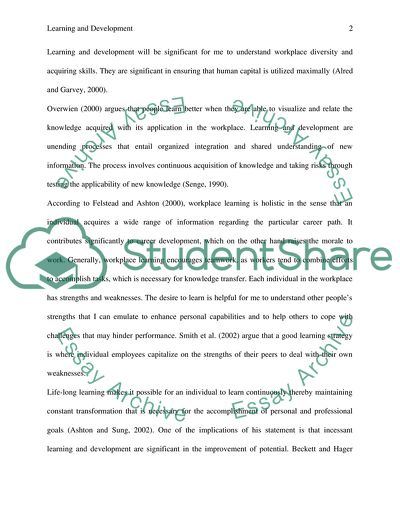Cite this document
(Learning and Development for Career Building Essay, n.d.)
Learning and Development for Career Building Essay. https://studentshare.org/education/1770171-learning-and-development-will-be-an-integrative-part-of-my-career-path-discuss-the-above-statement-in-terms-of-what-contribution-learning-and-development-makes-to-whichever-career-path-you-may-take
Learning and Development for Career Building Essay. https://studentshare.org/education/1770171-learning-and-development-will-be-an-integrative-part-of-my-career-path-discuss-the-above-statement-in-terms-of-what-contribution-learning-and-development-makes-to-whichever-career-path-you-may-take
(Learning and Development for Career Building Essay)
Learning and Development for Career Building Essay. https://studentshare.org/education/1770171-learning-and-development-will-be-an-integrative-part-of-my-career-path-discuss-the-above-statement-in-terms-of-what-contribution-learning-and-development-makes-to-whichever-career-path-you-may-take.
Learning and Development for Career Building Essay. https://studentshare.org/education/1770171-learning-and-development-will-be-an-integrative-part-of-my-career-path-discuss-the-above-statement-in-terms-of-what-contribution-learning-and-development-makes-to-whichever-career-path-you-may-take.
“Learning and Development for Career Building Essay”. https://studentshare.org/education/1770171-learning-and-development-will-be-an-integrative-part-of-my-career-path-discuss-the-above-statement-in-terms-of-what-contribution-learning-and-development-makes-to-whichever-career-path-you-may-take.


